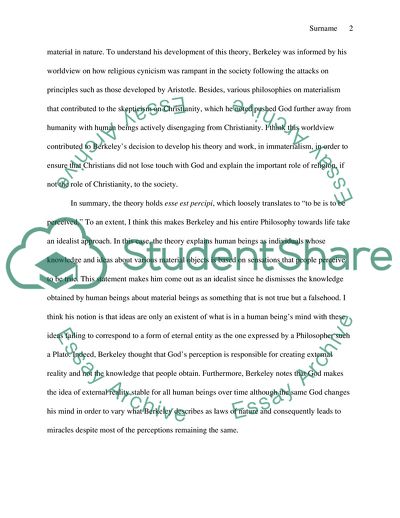Cite this document
(George Berkeley as the Famous British Empiricist Essay Example | Topics and Well Written Essays - 1250 words, n.d.)
George Berkeley as the Famous British Empiricist Essay Example | Topics and Well Written Essays - 1250 words. https://studentshare.org/psychology/1814223-george-berkeley
George Berkeley as the Famous British Empiricist Essay Example | Topics and Well Written Essays - 1250 words. https://studentshare.org/psychology/1814223-george-berkeley
(George Berkeley As the Famous British Empiricist Essay Example | Topics and Well Written Essays - 1250 Words)
George Berkeley As the Famous British Empiricist Essay Example | Topics and Well Written Essays - 1250 Words. https://studentshare.org/psychology/1814223-george-berkeley.
George Berkeley As the Famous British Empiricist Essay Example | Topics and Well Written Essays - 1250 Words. https://studentshare.org/psychology/1814223-george-berkeley.
“George Berkeley As the Famous British Empiricist Essay Example | Topics and Well Written Essays - 1250 Words”. https://studentshare.org/psychology/1814223-george-berkeley.


